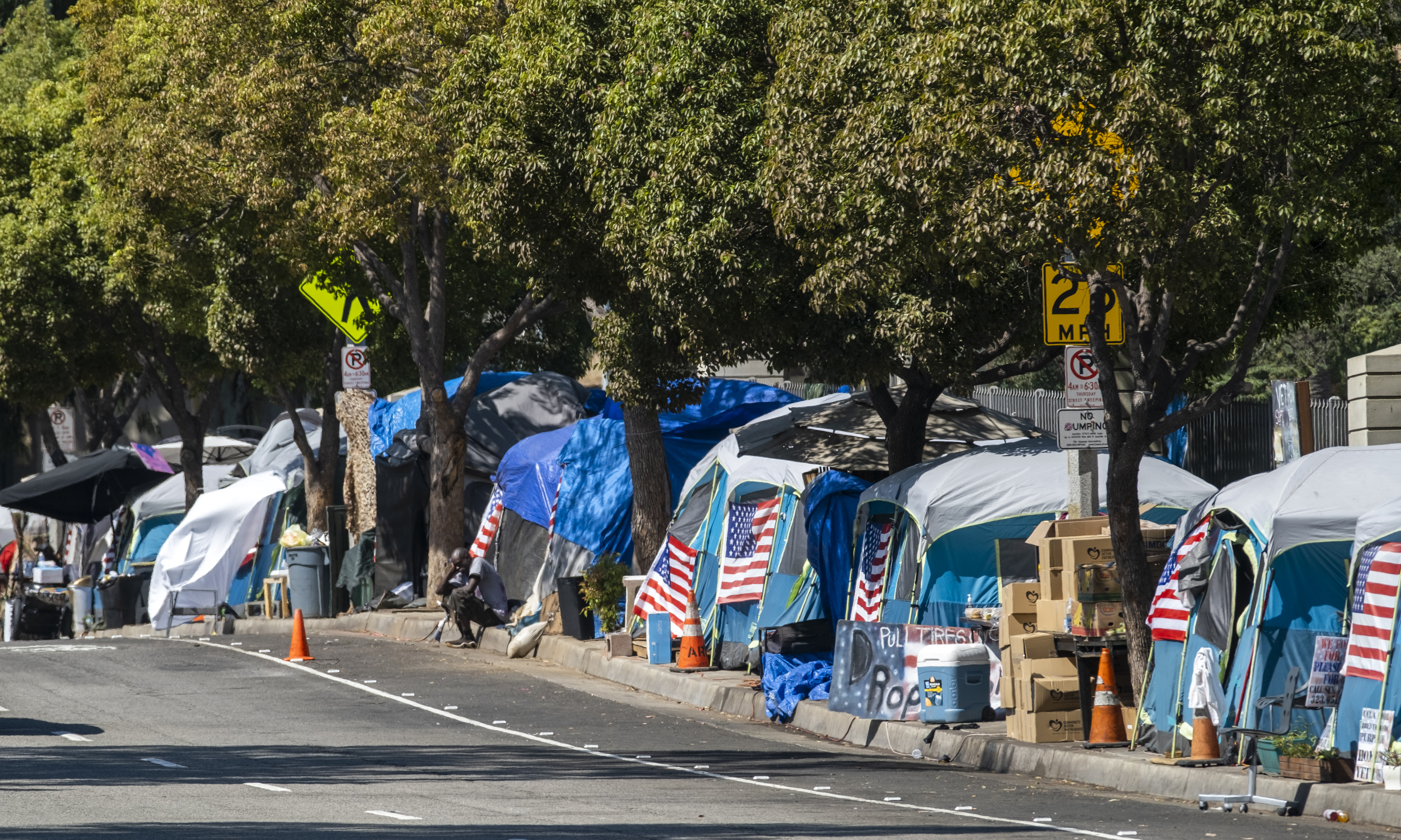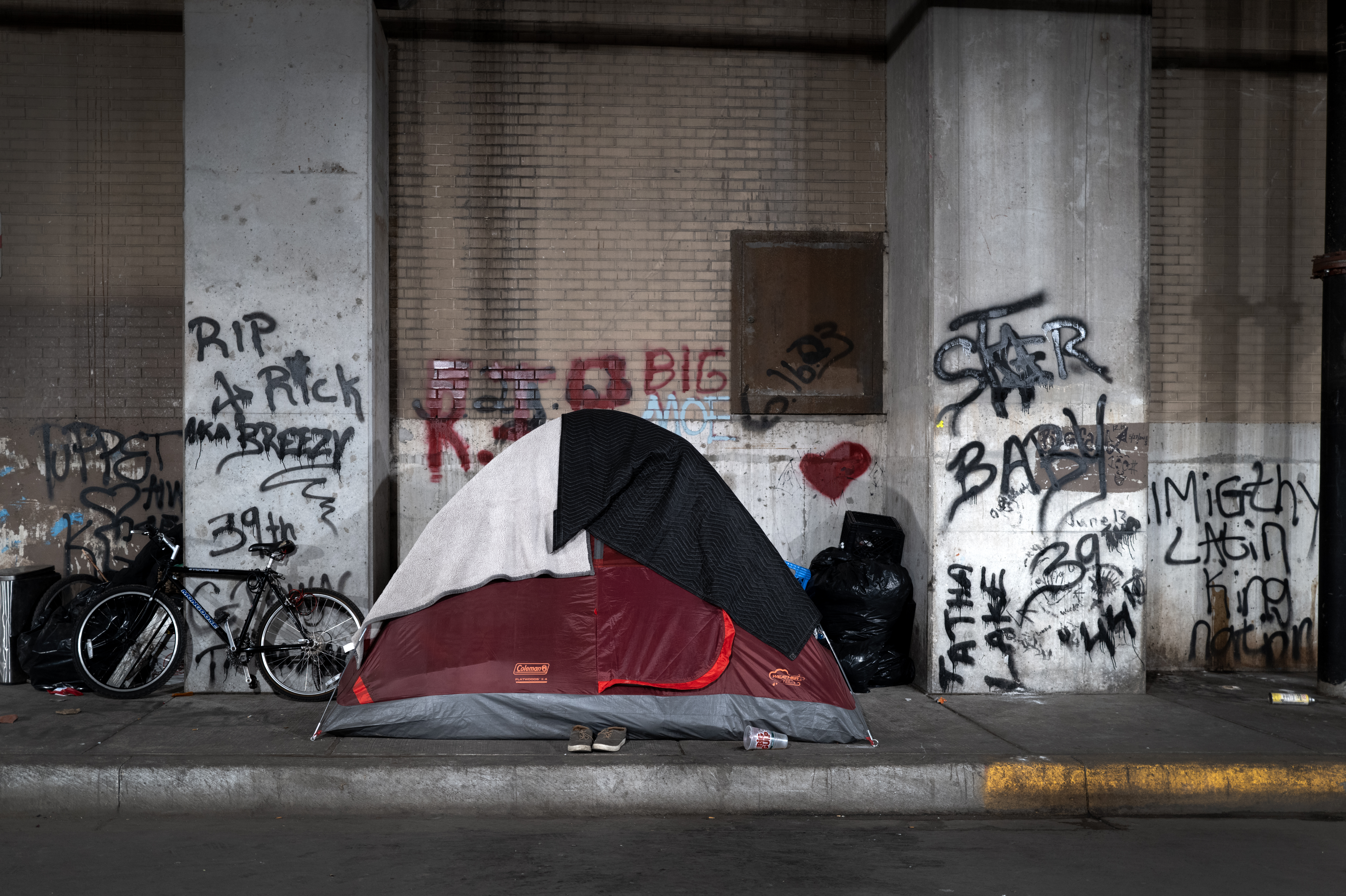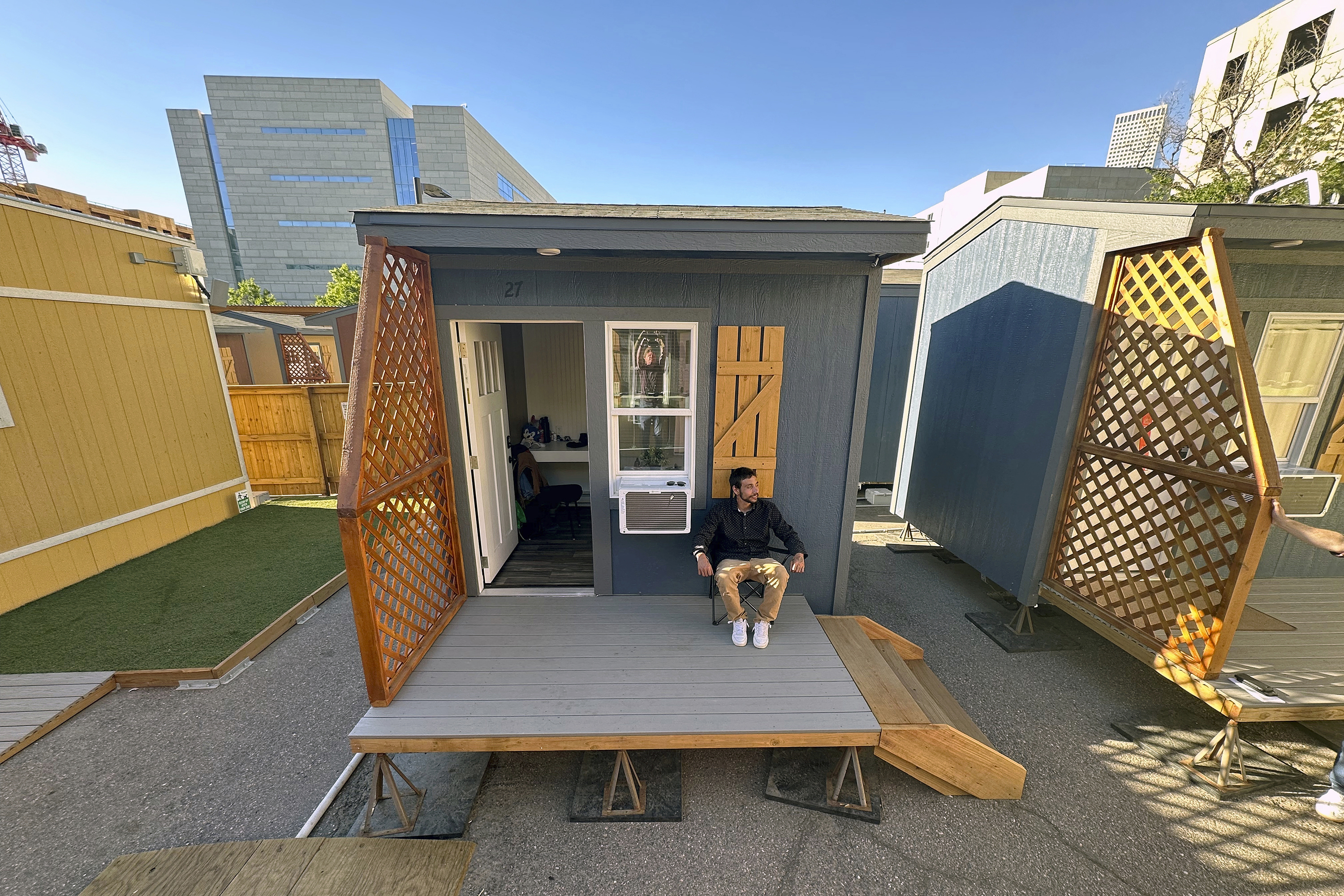
San Francisco Mayor London Breed has launched a new crackdown on people sleeping outside in a campaign to clear the sidewalks of homeless encampments that have come to define the city.
Her four challengers in November's election, all Democrats, say she hasn't handled the crisis effectively, though the city last month counted only 300 tents and other temporary structures, which is half as many as a year earlier.
But her opponents don't agree on a strategy.
“You can truly change the reputation of San Francisco from a place that today people believe they can come to our city, pitch a tent and stay as long as they want, to a city where — if that is the lifestyle they’re choosing — they look elsewhere,” said Mark Farrell, perhaps the most conservative of the challengers.
Get top local stories in Southern California delivered to you every morning. >Sign up for NBC LA's News Headlines newsletter.
It's a similar story in other big U.S. cities electing mayors this year.
Most are in the West, where a long-running homelessness crisis was spurred by high housing costs and has deepened during the coronavirus pandemic, which upended the nation four years ago. There are thousands of people without a place to live, and for many residents who are housed it has become a quality-of-life concern, which has made it a prime political issue.
California Gov. Gavin Newsom, a Democrat and former San Francisco mayor, threatened last week to pull state money from cities and counties that do not do more to get people out of encampments and into shelters.
A 2023 count found there were 653,000 people experiencing homelessness at a given time across the country, an increase of 63,000 from a decade earlier. The problem has become far more visible: 257,000 people were living on the streets or other places not intended for habitation, 61,000 more than in 2013.
Most of the big-city mayors and candidates — nearly all Democrats — say that more affordable housing and additional services for people experiencing homelessness are needed. The heart of the debate, as in San Francisco, is whether it's acceptable to force people off the streets.
In two of the largest cities in the West, challengers are emphasizing the homeless crisis in their races against incumbents who won handily four years ago.
Larry Turner, a police officer trying to unseat San Diego Mayor Todd Gloria, says the incumbent is overemphasizing temporary housing, including a plan to turn a warehouse into a 1,000-bed shelter. Gloria's campaign says he is working on both short-term and permanent housing.
In Phoenix, Matt Evans is arguing that incumbent Kate Gallego hasn't done enough to enforce laws and clear encampments. Gallego opposes what she calls the criminalization of homelessness and has added hundreds of shelter beds.
Elections could turn on the issue. And the situation on the streets can, of course, change depending on who is elected.
“Mayors can make a huge difference,” said Ann Oliva, executive director of the National Alliance to End Homelessness.
But she is critical of arresting or fining people who don't have places to live.
“You cannot pursue criminalization as your primary way of pursuing homelessness and also drive the numbers down,” Oliva said.
Some new mayors have made a dent in homelessness numbers without relying on penalties, she said.
In Los Angeles, the city with the biggest unsheltered population in the U.S., Karen Bass took office in December 2022 and immediately signed an emergency order making it easier for the city to contract with hotels to provide shelter. According to the homeless tally in January, the city's total dropped by 2%, the first decrease after years of increases. Bass has more than two years before she faces re-election.
In Mike Johnston's first six months as mayor of Denver last year, the city moved 1,000 people into hotels, a community of cabin-like structures and other transitional housing.
Other new mayors, such as Philadelphia's Cherelle Parker, have incorporated a get-tough approach that many candidates are calling for, and which the Supreme Court validated with a ruling in June that allows bans on sleeping outside.
A dozen candidates are vying for the job in November's open mayoral election in Portland, Oregon, the center of a metro area where a January 2023 count found nearly 4,000 people living outside.
City council member Rene Gonzalez pressured Multnomah County, home to Portland, to pause distributing tents and tarps to homeless people.
Gonzalez pushed for a tougher city ordinance last year but joined a unanimous city council decision in May to allow officials to fine or even jail homeless people who reject an offer of shelter.
In San Francisco, Breed’s office issued a memo in July saying homeless people who continue to turn down offers of shelter and services will face increasing penalties including arrest if they continue to camp in public.
Breed also ordered that homeless people who are not from San Francisco be offered bus or train tickets to return home before they are provided shelter or services, adding in a statement that “we cannot solve everyone’s individual housing and behavioral health needs.”
One of Breed's challengers, San Francisco Supervisor Aaron Peskin, opposes encampment sweeps. Another challenger, Supervisor Ahsha Safaí, says the sweeps are cruel unless sufficient shelter is available.
Challenger Daniel Lurie, an heir to the Levi Strauss fortune who has a nonprofit that funds temporary tiny homes, promised to build 1,500 shelter beds in the first six months of his administration so people forced out of encampments have somewhere to go.
"There’s just been no plan for the last three years with this administration,” Lurie said.
Breed's administration has added thousands of temporary and more permanent shelter beds, but there is still a significant shortage.
“Her opponents aren’t offering locations where they will build shelters, how they will get it done, and how they plan to pay for their plans,” said Joe Arellano, a Breed campaign spokesperson.
Michael Johnson, who is homeless in San Francisco, the city where he grew up, was preparing to move recently in advance of an expected tent sweep to avoid what he said happened in a previous sweep when he was given 10 seconds by police and city street cleaners to move his tent and belongings. He didn't, and lost everything.
Homeless people often reject offers of shelter if it means giving up their belongings or pets, being separated from significant others or sleeping in places surrounded by strangers, including some who may be violent.
Johnson, 41, doesn’t like living outdoors. But he says no one has offered him appropriate housing and, wherever he goes, he's always moved again by authorities.
“This is a merry-go-round,” he said. “It don’t matter if I stay at the location I’m at or find a new one. Eventually, they’ll be here.”
___
Mulvihill reported from Cherry Hill, New Jersey. AP reporters Terry Chea in San Francisco and Claire Rush in Portland, Oregon, contributed to this article.




